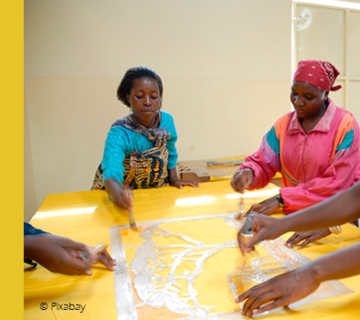“In his first ‘Angelus’ message in Rome on 17th March 2013, Pope Francis said: “We don’t hear Jesus speaking words of contempt, or condemnation, but only words of love and mercy.” In fact, mercy and forgiveness are characteristic Christian virtues that we can practice every day with all the brothers and sisters we meet.
What makes mercy so powerful that it triumphs over justice (cf. Lk. 1:54)? And why does Jesus consider this virtue so important that he makes it a condition for personal salvation? As Pope John Paul II clearly explained, mercy is “an indispensable dimension of love; it is, as it were, love’s second name.”[1] …
This theme is found again in the prayer of the Our Father: “Forgive us our trespasses as we forgive those who trespass against us.” We could say that there is a law written in heaven in which our sins our remitted to the extent that we forgive our brothers and sisters.
The theme of mercy and forgiveness pervades the entire Gospel. Actually, Jesus’ goal is what he revealed to us in his final prayer the night before his passion: to unite all people, to make all humanity one big family whose model is the Trinity. The whole of his teaching tends to give us, through his love, the tool for achieving this exceptional fellowship among ourselves and with God. And mercy is the utmost expression of love, of charity, that which completes it, which makes it perfect.
Let’s try, then, in all our relationships, to live this love for others in the form of mercy!
Mercy is a love that welcomes every neighbour, especially the poor and needy. It is a boundless, abundant, universal, and concrete love. It is a love which encourages reciprocity, which is the ultimate goal of mercy, without which there would be only justice, which serves to create equality, but not fraternity.
People often talk about denying forgiveness to those who have committed serious crimes; revenge is called for more than justice. But once every attempt has been made to compensate for the damage done, we must make way for forgiveness, which is the only way to heal the personal and social trauma produced by wrongdoing. “Forgive and you will be forgiven” (Lk. 6:37).
Therefore, if we have been offended or treated unjustly in any way, let’s forgive and we will be forgiven. Let’s be first to show kindness and compassion! Even if it seems difficult and requires great courage, let’s ask ourselves, in front of every neighbour: what would his or her mother do? This thought can help us to understand and live in accordance with the heart of God.
Chiara Lubich
(Chiara Lubich, in Parole di Vita, [Words of Life] Città Nuova, 2017, pp. 632/4)
[1] John Paul II, Dives in Misericordia, n. 7


 Italiano
Italiano Español
Español Français
Français Português
Português




Ho avuto una madre che era stata presidente dellA.C.,la quale ci diceva ,,io perdono.ma non dimentico ,,ed io pensavo fosse un fatto naturale ….ora invece la riflessione sulla misericordia mi sta donando sempre più una concezione cristiana , grazie
Gracias por esta meditacion sobre el perdón y la misericordia que tanta paz da .